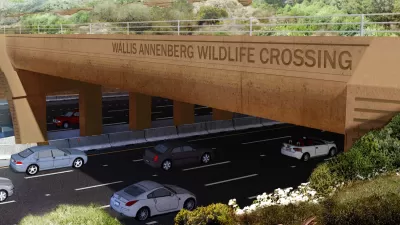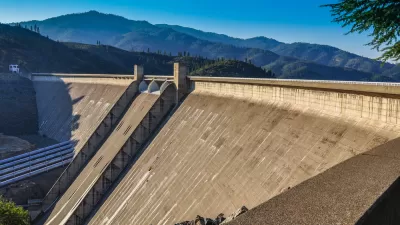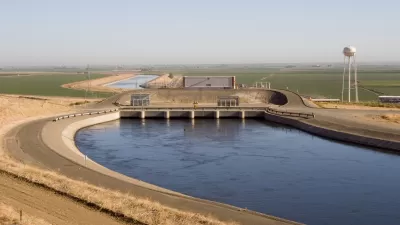America is reaching the limits of its water supply, signaling a need to change urban development, energy and agricultural practices, writes Shiney Varghese of the Institute for Agriculture and Trade Policy.
"Today, in many parts of the U.S. we are nearing the limits of our water supplies. And that is getting our attention. The writing has been on the wall for some time. The private sector has been showing much interest in water as a source of profit, and water privatization has been an issue in many parts of the country.
The failure in public water systems has indeed been a contributing factor for this interest. In many cities, consumers have been organizing and opposing the privatization of water utilities, because they have been concerned about affordability or deterioration in the quality of service. Environmental organizations and consumer activists have also been concerned about the socio-economic, health and environmental implications of ever increasing bottled water use. But for most of us living in the U.S., water is something we take for granted, available when you turn your tap on -- to brush your teeth, to take a shower, to wash your car, to water your lawn, and if you have your own swimming pool then, to fill that as well.
So it was with alarm that many of us read the story of Orme, a small town tucked away in the mountains of southern Tennessee that has become a recent symbol of the drought in the southeast. Orme has had to literally ration its water use, by collecting water for a few hours every day -- an everyday experience in most developing countries, but unusual for the U.S. This is an extreme experience from the southeast region that has been under a year long dry spell. In fact, the region's dry spell resulted in the city of Atlanta setting severe water use restrictions and three states, Georgia, Florida and Alabama, going to court over a water allocation dispute (settled in favor of Florida and Alabama early last month).
Early this year we also heard that drought in the region could force nuclear reactor shut-downs. Nuclear reactors need billions of gallons of cooling water daily to operate, and in many of the lakes and rivers water levels are getting close to the limit set by the Nuclear Regulatory Commission. It is possible in the coming months that we may see water levels decrease below the intake pipes, or that shallow water could become warmer and unusable as a coolant. While this may not cause blackouts, this can result in increased costs for energy as utilities have to buy from other sources.
Like Katrina, this crisis gives us yet another opportunity to rethink and challenge issues that we need to raise: land use planning that allows unfettered development, energy production that is water intensive, and agricultural water use that is inefficient from a hydrological perspective. So far we have assumed that we can undertake any development we want, wherever we want, or we could grow whatever we want, however we want, and that water will always be available to support that growth. In the process we are draining our aquifers, polluting our rivers, tampering with ecosystems and destroying the diversity of life -- as if nature is ours to be manipulated to suit our wants. It is time to change some of our practices."
FULL STORY: The U.S. Nears the Limits of Its Water Supplies

Pennsylvania Mall Conversion Bill Passes House
If passed, the bill would promote the adaptive reuse of defunct commercial buildings.

World's Largest Wildlife Overpass In the Works in Los Angeles County
Caltrans will soon close half of the 101 Freeway in order to continue construction of the Wallis Annenberg Wildlife Crossing near Agoura Hills in Los Angeles County.

U.S. Supreme Court: California's Impact Fees May Violate Takings Clause
A California property owner took El Dorado County to state court after paying a traffic impact fee he felt was exorbitant. He lost in trial court, appellate court, and the California Supreme Court denied review. Then the U.S. Supreme Court acted.

Podcast: Addressing the Root Causes of Transit Violence
Deploying transit police is a short-term fix. How can transit agencies build sustainable safety efforts?

Minneapolis as a Model for Housing Affordability
Through a combination of policies, the city has managed to limit the severity of the nationwide housing crisis.

Indy Bikeshare System Turns 10, Expands to E-Bikes
Pacers Bikeshare riders logged over 700,000 rides since the system launched in 2014.
City of Costa Mesa
Licking County
Barrett Planning Group LLC
HUD's Office of Policy Development and Research
Mpact Transit + Community
HUD's Office of Policy Development and Research
Tufts University, Department of Urban and Environmental Policy & Planning
City of Universal City TX
ULI Northwest Arkansas
Urban Design for Planners 1: Software Tools
This six-course series explores essential urban design concepts using open source software and equips planners with the tools they need to participate fully in the urban design process.
Planning for Universal Design
Learn the tools for implementing Universal Design in planning regulations.


























